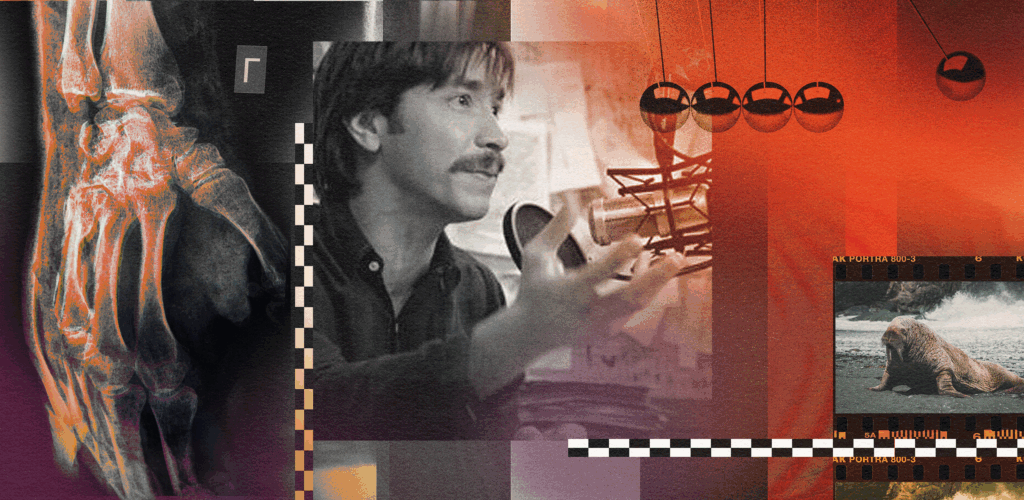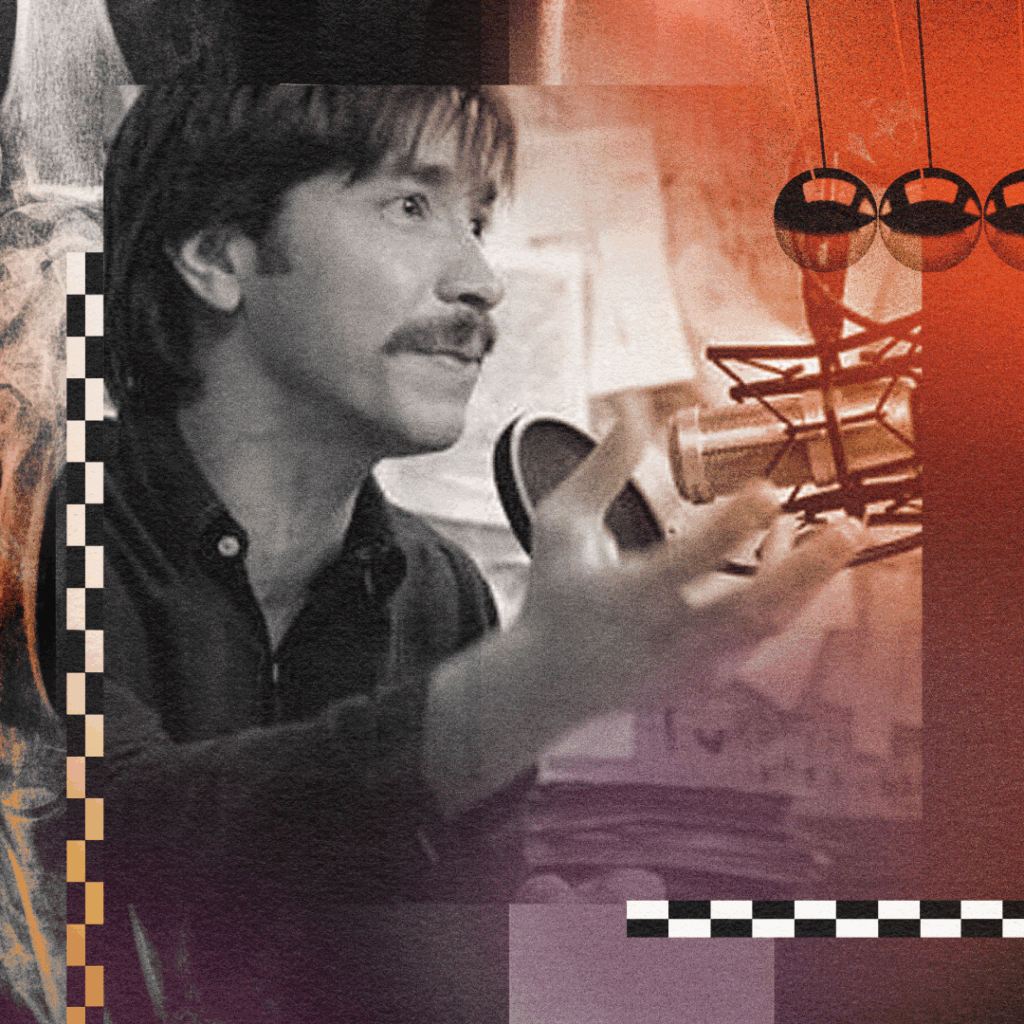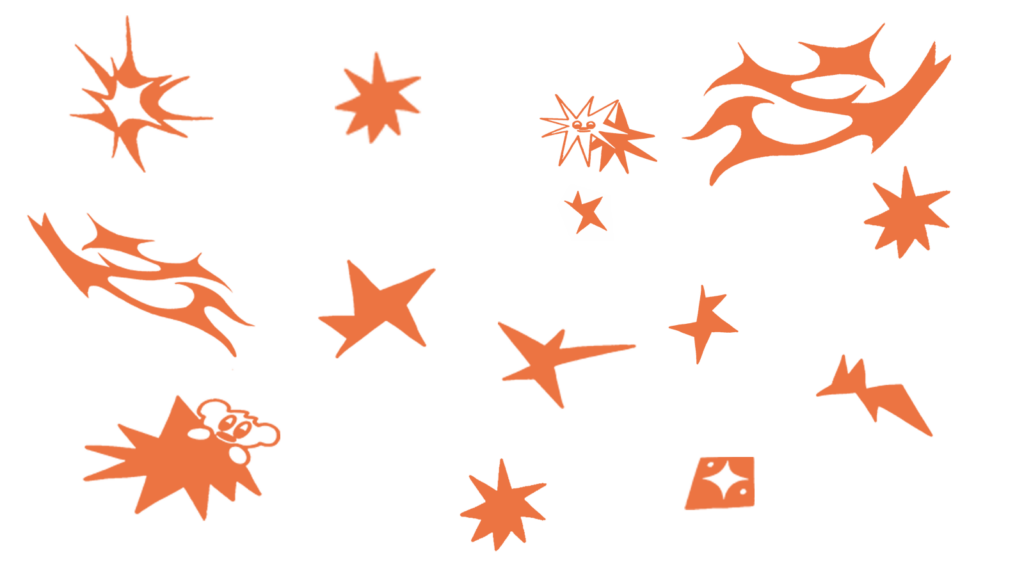Tusk Everlasting
The hit Netflix series “Nobody Wants This” returns for a second season this month, still based on the experiences of multi-hyphenate Erin Foster, particularly her foray into podcasting. It’s far from the first fictional series to spring from earphones to eyeballs. Others include “Homecoming,” “WeCrashed,” and “The Shrink Next Door,” and even if you’re not familiar with their specific source materials, the collective presence of Julia Roberts, Anne Hathaway, Jared Leto, Will Ferrell, and Paul Rudd, among others, should signal that this sort of source material can attract A-list talent. In fact, all those actors were lured from movie stardom into streaming TV with podcast material, which makes it all the weirder that the only major podcast-based movie, “Tusk,” stars Justin Long in a gruesome walrus suit.
Kevin Smith’s 2014 film isn’t the only movie with a podcast connection, mind. “Pump Up the Volume” is an essential pre-podcast text, and plenty of movies have included characters who have podcasts, whether as a gag (as with the character named, uh, Podcast, in the newer “Ghostbusters” movies) or a symbolically hip profession (like in “You People” and “Bros”). Some of these movies, or others, may have even featured stray material first generated on a podcast episode. But the entire concept of “Tusk” emerged from a conversation between writer-director Smith and his producer and pal Scott Mosier on an episode of their show “SModcast” in the summer of 2013.
Smith and Mosier were discussing an ad hosted on a British Craigslist-like site in which a supposed homeowner offered free room and board to a tenant willing to dress as a walrus. The ad turned out to be a practical joke, but it was too late; Smith and Mosier’s imaginations were so inflamed that they riffed a whole horror story, followed by a tongue-in-cheek online poll about whether they should turn it into a movie. Fans affirmed the idea, and Smith made the damn thing. It was even released by A24, then just two years old.
In other words, A24 was still an outsider, making it the perfect outfit to take the concept from “SModCast” to the silver screen. Fittingly, “Tusk” in no way feels like Hollywood belatedly cashing in on the podcast trend, because neither Hollywood at large nor cash in general seemed remotely interested in what Smith was cooking up here. This relative freedom from industry lends an experimental fidelity to the thinness of the movie’s niche-driven premise. It really is about a callow comedy podcaster (Justin Long) who, hitting a dead end on a trip to Canada to interview an internet-famous celebrity, stumbles upon a different potential subject — Howard Howe (Michael Parks), a maniac who wants to turn a man into a walrus companion through gnarly surgery. The film stands out from the aforementioned TV series, then, through its basis in the podcasters’ personalities, rather than their subjects. “Tusk” isn’t just a movie based on a podcast; it’s based on a specific podcast riff from a specific episode. And what “Tusk” gets right about comedy podcasting, which is prescient, considering it was made over a decade ago, is the single-minded mission it’s capable of instilling within its participants.
In an awkward but effective expository scene, Ally (Genesis Rodriguez) talks with Wallace (Long) about how his style of humor has become increasingly callous as his pod has taken off. Wallace doesn’t respond with any free-speech righteousness; there’s actually refreshing retrospective honesty when he explains that he likes the “new Wallace” more because people pay attention to him and, moreover, he makes a lot of money. That’s what drives his trip to Canada to interview a sword-wielding amputee, Kill Bill Kid, whom Smith writes as a more tragic version of the Star Wars Kid, the real-life teenager who went viral after uploading a video practicing lightsaber moves. (An inventive braiding in of real life here from Smith: The now-grown Star Wars Kid is, in fact, Canadian.) If he doesn’t interview this kid as planned, he reasons, he and his buddy Teddy (Haley Joel Osment) won’t have a show that week.
This is also what the movie doesn’t exactly miss, but fails to predict about the cult of podcasting personality exemplified by Joe Rogan or more conscious edgelords (or, for that matter, the more positive, inventive side of comedy podcasting seen in “Comedy Bang! Bang!”). The idea that Wallace and Teddy’s fans need more than the hosts’ self-satisfied banter feels weirdly outdated a decade later. Today, they’d be correctly convinced that they need only themselves to improvise another gem, “Kill Bill Kid” be damned. This confidence is there in “Tusk,” but in the filmmaker rather than the character, and it manifests as a profound anticlimax. The big walrus-man unveiling happens halfway through the film; by the time it reaches a grimmer conclusion, it feels like it ended ages ago, when Wallace lost his ability to produce smarmy jokes. Smith seems convinced his fans will see it through anyway.
Still, there is something fascinatingly online about the entire enterprise of “Tusk,” a must-see moment for anyone interested in its converging sources of inspiration. At times, it seems like an unholy fusion of various internet and/or podcasting cliches. There’s the bro-comedy hubris of Wallace in particular, and the chatty self-indulgence of its origin in general, too cutely replayed over the tail end of the movie’s credits, self-satisfied gales of laughter and all. It’s also a self-consciously ridiculous out-there body horror movie, which plays like an inventive attempt to reverse-engineer the subject of a “bad movie” podcast (e.g., “How Did This Get Made?,” “The Flop House,” and so on), where comedians riff somewhere between wonder and smugness over allegedly failed art. Though Johnny Depp shows up to play a French-Canadian detective — mostly because his daughter Lily-Rose Depp is friends with Smith’s daughter Harley Quinn Smith — it also seems like a detail added for maximum WTF effect. Speaking of Lily-Rose Depp and Harley Quinn Smith: They appear briefly in “Tusk” as the characters who star in a later Smith project, “Yoga Hosers.” Yes, in true networked fashion, “Tusk” spawned a spinoff.
Extended universes and spin-offs are, of course, a big part of contemporary cinema, too. That’s something big podcasts have in common with long-running film franchises: lore that may be penetrable only to dedicated fans. It seems entirely possible that the movie business isn’t uninterested in podcast source material. Maybe it’s more that the kind of podcast material that inspires “Tusk” isn’t interested in the movies. Smith is old enough to maintain a residual awe along with some respect for the form that catapulted him from a Jersey nerd to a name-brand entertainer. That’s not something all his younger fans, or those who followed him into the medium of podcasting, will necessarily share. They don’t see movie potential in their silly conversations. They see a form of mass-media success that doesn’t require a silver screen.
Jesse Hassenger is a writer and editor living in Brooklyn whose work appears in Paste, The A.V. Club, Polygon, Decider, and GQ, among others.







